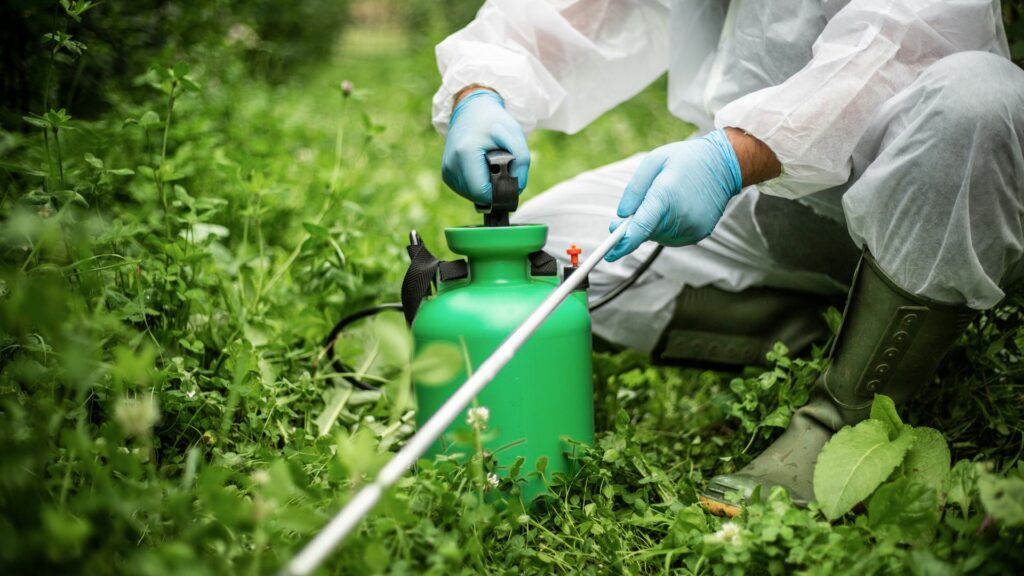The European Environment Agency (EEA) has called on EU Member States to reduce their use of pesticides, stressing the "devastating" impact they have on nature and humans.
While some EU Member States have made significant steps to reduce the use of pesticides, 83% of agricultural soils tested in a 2019 study still contained pesticide residues, an EEA briefing noted, stressing that they cause "significant risks to human health and the environment.
"In the EU-27, pesticide sales have remained relatively stable, at around 350,000 tonnes per year between 2011 and 2020," said the EEA, citing Eurostat figures, adding that widespread pesticide use is a major source of pollution which contaminates water, soil and air, driving biodiversity loss and is causing a significant decline in insect populations, "threatening their essential role in food production."
In 2020, one or more pesticides were detected above the thresholds of concern in more than one-fifth of river and lake monitoring sites in Europe.
The report, based on a large-scale study conducted between 2014 and 2021 in five European countries, also found that at least two pesticides were present in the bodies of 84% of survey participants. "Among those who participated, pesticide levels were consistently higher in children than in adults."
"Human exposure to chemical pesticides is linked to chronic illnesses, such as cancer, and heart, respiratory and neurological diseases," it added.
Belgium is European champion
While Belgium is the European champion in the export of pesticides banned in the EU, the country is also in the top four European consumers of pesticides. Only Cyprus, the Netherlands and Ireland are ahead of Belgium in the standings.
In 11 Member States, however, sales decreased over the period 2011-2020, with the largest decreases recorded in the Czech Republic, Portugal and Denmark. Meanwhile, the largest total increases in volumes sold were recorded in Germany and France.
To reverse this, much more needs to be done to achieve the EU’s zero pollution targets to reduce by 50% the use and risk of chemical and more hazardous pesticides by 2030, the EEA said.
Related News
- Belgium named largest exporter of EU-banned pesticide
- Banned toxic pesticides still circulate in Belgium
It welcomed the recent proposal from the European Commission, which would require countries to set their own national reduction targets and ensure that all farmers and other professional pesticide users adopt environmentally friendly systems of pest control while restricting the use of pesticides in sensitive areas such as urban green areas and protected areas.
However, it stressed that to reduce dependency on chemical pesticides and maintain food security, it will also be "critical to promote the shift to alternative models of agriculture that apply ecological concepts and principles to agricultural production."

